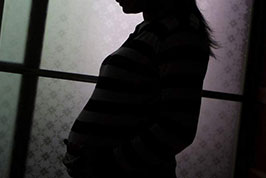Should pregnant women fast during Ramadan?



To fast or not during pregnancy? We bring you expert advice.
The dilemma over fasting during Ramadan bothers many expectant mothers. Questions on whether or not it is safe to fast during pregnancy worries women often. We bring you some expert advice on the issue so that you and your baby stay safe and healthy through this Ramadan.
To fast or not during pregnancy:
This has to be decided by your doctor who is in full knowledge of issues relating to your pregnancy. If your doctor suggests fasting, you may go ahead with it.
In general, any pregnant woman who suffers from complications during pregnancy, like high blood pressure, diabetes, kidney infections or heart problems must refrain from fasting.
According to Dr Rashi Gupta, Specialist Obstetrics and Gynecology at iCare Clinics, Dubai, there are certain essential tips to follow while fasting for pregnant women:
Contact your doctor in case you feel any of the following:
In general, it is suggested that women may not fast during their first and the third trimester of pregnancy.
Islamic view:
According to Islam, pregnant women are allowed to quit fasting during Ramadan. She can make up for the missed fasts later, when she is healthy.